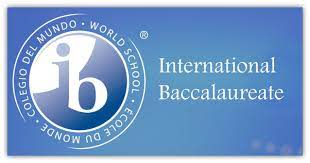
ABOUT International Baccalaureate (IB)
- The International Baccalaureate (IB) is a globally recognized educational program known for its rigorous and holistic approach to learning.
- Founded in 1968, the IB offers a range of programs for students of all ages, from primary years to post-secondary education.
- The primary focus of IB programs is to develop well-rounded, knowledgeable, and culturally aware individuals.
The main aspects of the IB program:
1. Four Programmes: The IB offers four main programs:
- Primary Years Programme (PYP): Designed for students aged 3 to 12, this program focuses on developing inquiry-based learning and holistic development.
- Middle Years Programme (MYP): Geared towards students aged 11 to 16, this program emphasizes interdisciplinary learning and personal development.
- Diploma Programme (DP): For students aged 16 to 19, this is a two-year, academically challenging program that prepares students for higher education.
- Career-related Programme (CP): Designed for students aged 16 to 19, this program combines academic study with practical experience in a career-related field.
2. Global Perspective: The IB curriculum is internationally minded, promoting an understanding of different cultures, languages, and worldviews. It encourages students to think critically and consider global issues.
3. Holistic Approach: IB programs are designed to foster not only academic but also personal, social, and emotional growth. This is achieved through Creativity, Activity, Service (CAS) and the Theory of Knowledge (TOK) components.
3. High Academic Standards: The IB Diploma Programme is academically rigorous and respected by universities worldwide. It offers a broad range of subjects, including languages, humanities, sciences, mathematics, and the arts.
4. Assessment and Exams: Students in the IB Diploma Programme are assessed through a combination of internal and external assessments. This includes written exams, oral assessments, essays, projects, and presentations.
5. Theory of Knowledge (TOK): TOK is a critical thinking course required in the Diploma Programme. It encourages students to reflect on the nature of knowledge and how we know what we claim to know.
6. Extended Essay (EE): In the Diploma Programme, students must complete an extended essay, which is a 4,000-word independent research project on a topic of their choice.
7. CAS (Creativity, Activity, Service): CAS is a mandatory component in the Diploma Programme. It requires students to engage in creative and physical activities, as well as community service, to develop personally and socially.
8. University Recognition: Many universities around the world recognize the IB Diploma and offer special admissions considerations to IB students. The program is highly regarded for its academic rigor.
9. International Network: The IB has a network of schools worldwide that offer its programs. These schools must meet strict standards to offer IB education.
The IB program is known for its commitment to producing well-rounded, globally aware individuals who are equipped with strong critical thinking skills.




















